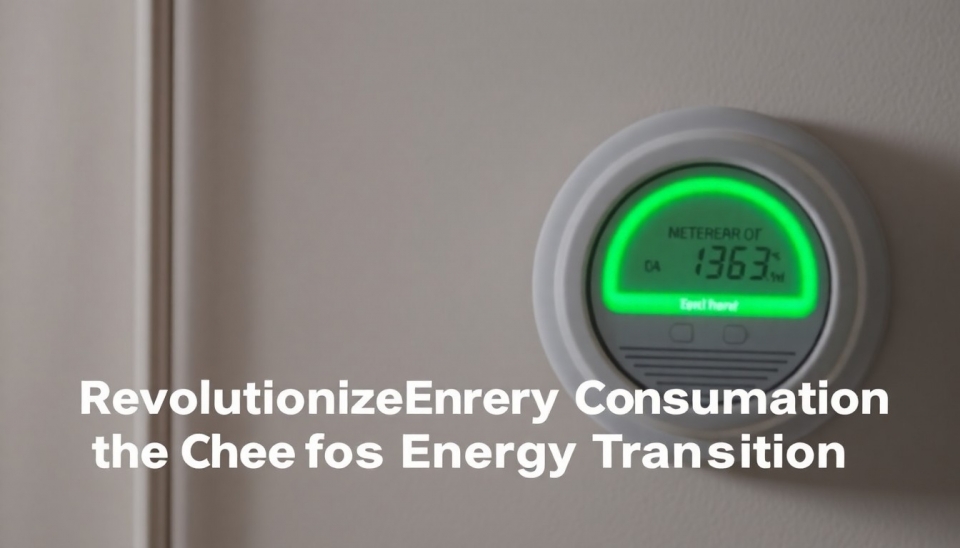
The transition to a more sustainable and efficient energy system is underway, and at the forefront of this evolution are smart meters. These innovative devices play a pivotal role in empowering consumers, optimizing energy usage, and supporting the broader goals of decarbonization. As we navigate the complexities of climate change and its impacts, the installation of smart meters emerges as a smart solution not only for residential energy management but also for maintaining grid stability and enhancing energy policy effectiveness.
Smart meters allow homeowners and businesses to track their energy consumption in real time, offering insights that traditional meters cannot provide. Instead of receiving a monthly bill that reflects usage from weeks prior, consumers can actively monitor their energy use, identify peak consumption times, and make informed decisions to reduce their electricity bills. This increased transparency is crucial as it enables individual actions to aggregate into meaningful reductions in overall energy demand, which in turn provides a clearer path toward achieving national emissions targets.
The integration of smart meters also supports the renovation of electrical grids struggling to keep pace with rising demand and the influx of renewable energy sources. As wind and solar energy become more prevalent, managing the reliability of the power supply is more vital than ever. Smart meters facilitate the adjustment of energy loads and the distribution of power when the grid is under stress, allowing for a more resilient energy infrastructure. This adaptive response capability not only mitigates the risk of blackouts but also enhances the grid’s ability to accommodate fluctuations inherent in renewable sources.
Moreover, the effectiveness of smart meters is amplified when paired with dynamic pricing models. Utilities can incentivize consumers to use energy during off-peak times through variable pricing, thus encouraging behavioral shifts that lead to overall energy efficiency. When consumers are aware of how their usage impacts costs, they are more likely to adopt energy-saving habits. As a result, not only do they save money, but they also contribute to a greener future by moderating peak demand—a critical factor in reducing reliance on fossil fuel-powered plants during high-consumption periods.
Despite the numerous benefits associated with smart meters, their adoption has faced hurdles, including consumer concerns about privacy and data security. Individuals worry about how their energy consumption data will be analyzed and utilized, particularly as energy companies explore ways to integrate advanced technologies like artificial intelligence into their systems. Addressing these apprehensions is essential for broadening acceptance and ensuring that smart meters are fully integrated into the fabric of modern energy management.
To maximize the potential of smart meters, government policies must also evolve. Support for the rollout of these devices through subsidies or incentives can accelerate adoption. Furthermore, educational initiatives aimed at informing the public about the benefits of smart meters can foster a culture of energy consciousness and support the transition to sustainable energy solutions. The interplay between technology, policy, and public understanding is critical in achieving success in the energy transition.
Ultimately, the transition to smart meters represents a forward-thinking approach to energy consumption that aligns individual and collective goals. By empowering consumers, promoting energy efficiency, and facilitating a more resilient grid, smart meters stand at the intersection of innovation and sustainability. As we move toward a greener future, equipping our energy systems with smart technology may be one of the most strategically sound decisions we can make.
In conclusion, as the world grapples with the urgent need to address climate change, the adoption of smart meters could pave the way for a more efficient, transparent, and sustainable energy system. Ensuring a smooth transition requires collaboration between utilities, policymakers, and consumers, making smart meters not just a smart choice, but a necessary one for a sustainable future.
#SmartMeters #EnergyTransition #Sustainability #RenewableEnergy #Efficiency #Decarbonization #GridStability #EnergyManagement #ClimateAction #CleanEnergy
Author: Emily Collins




